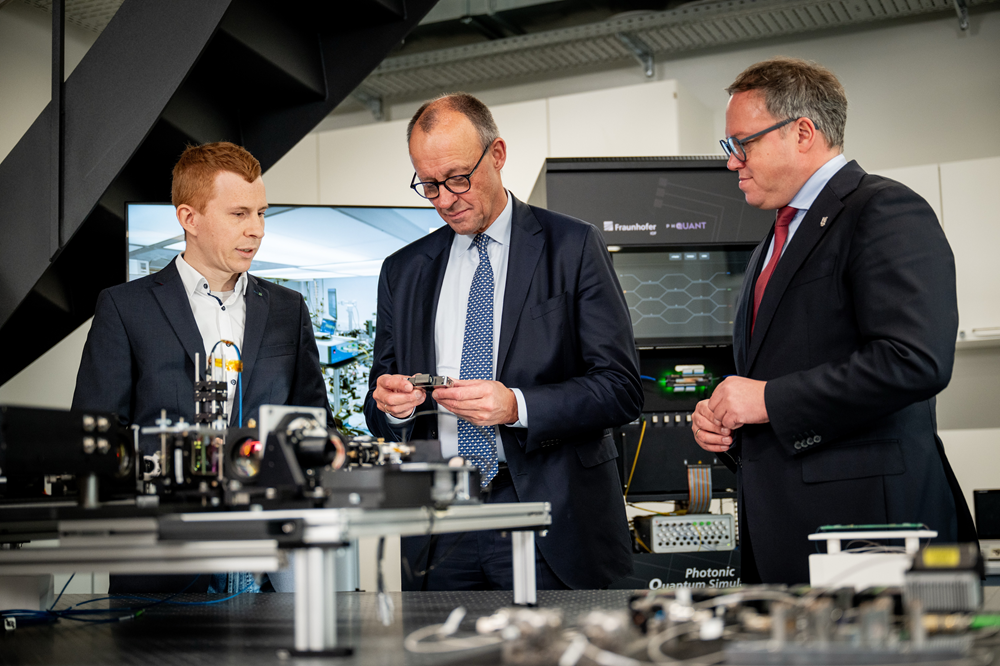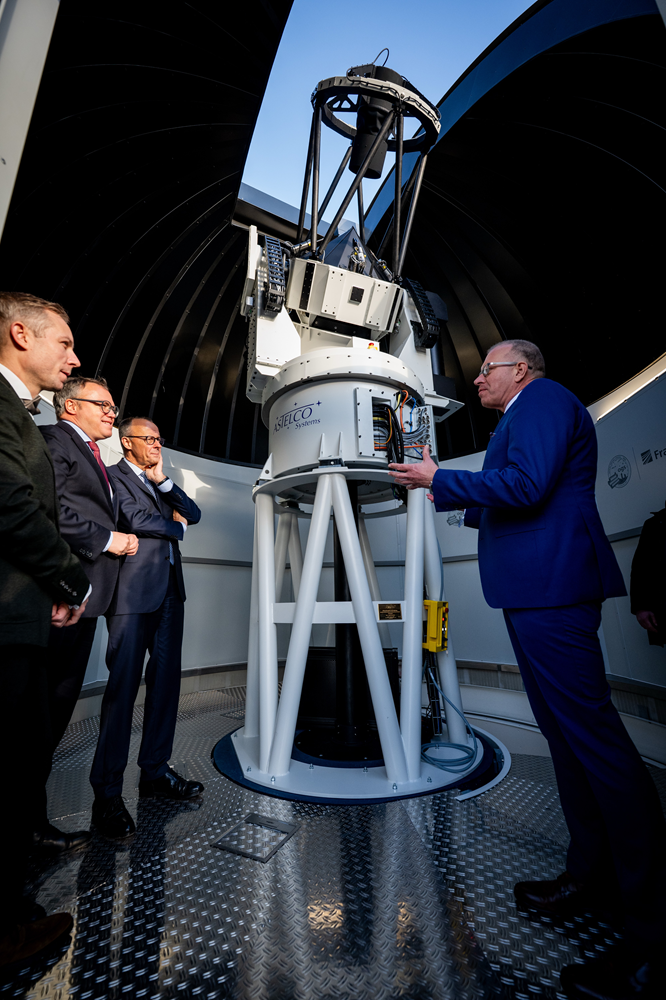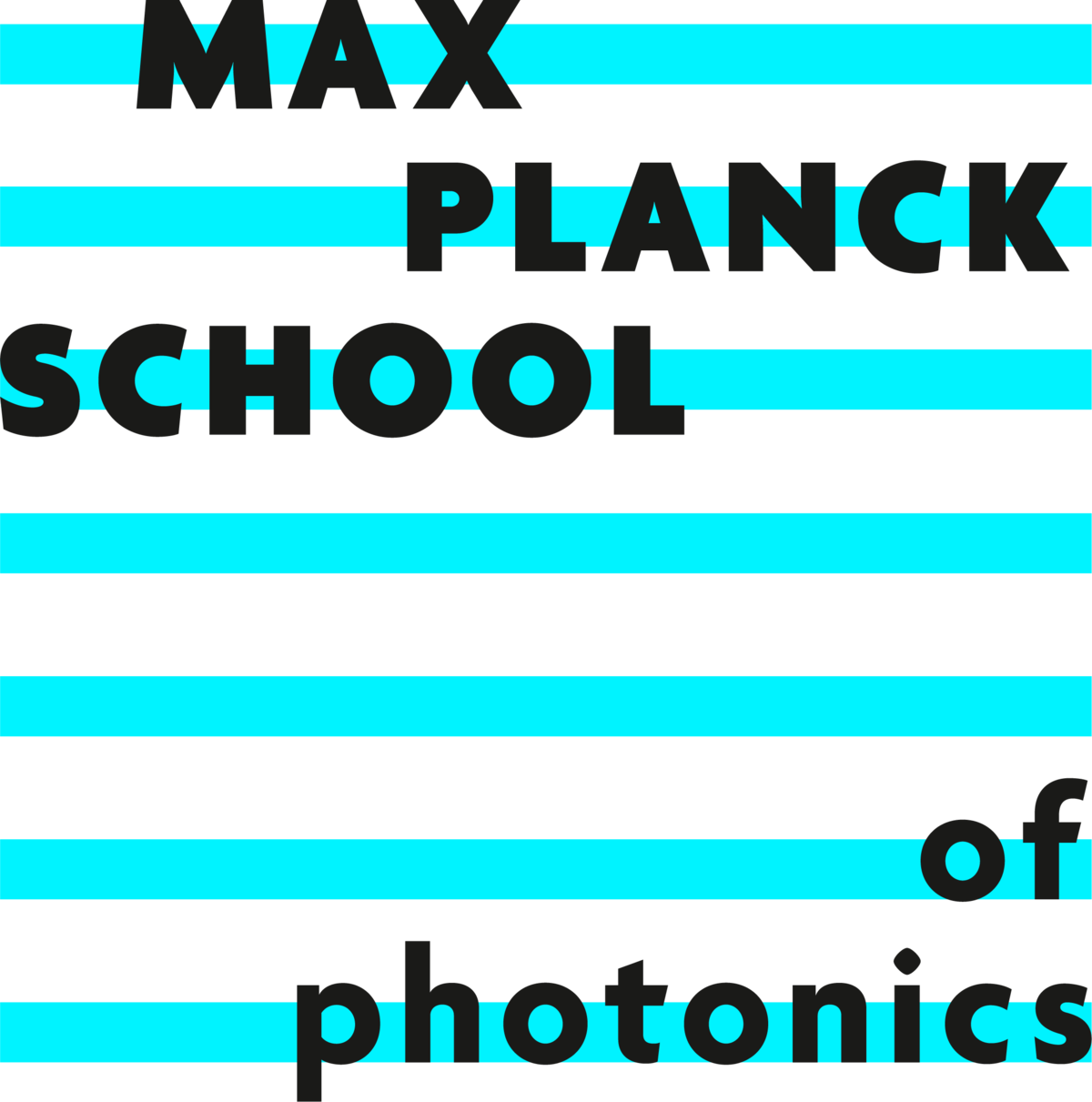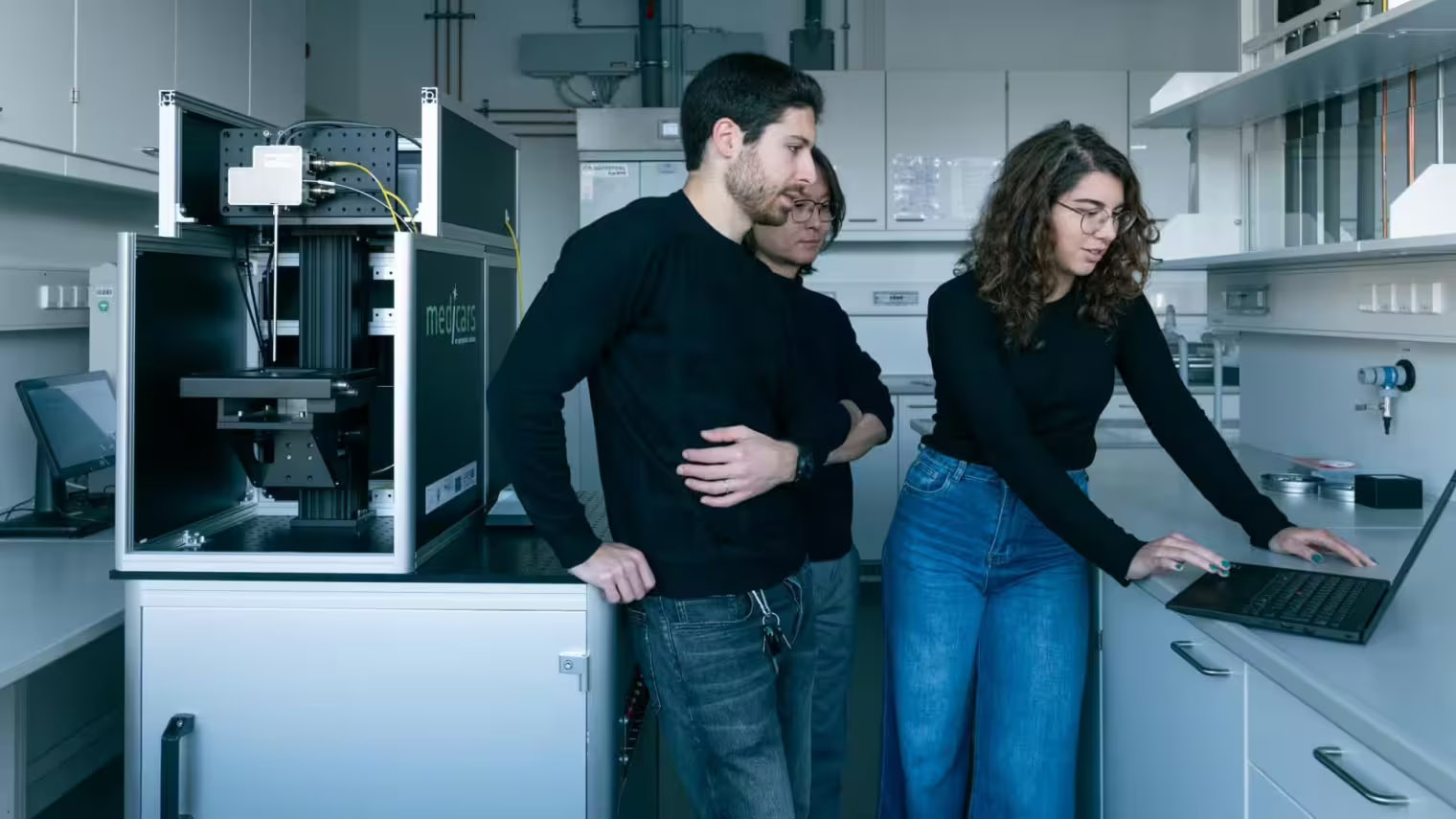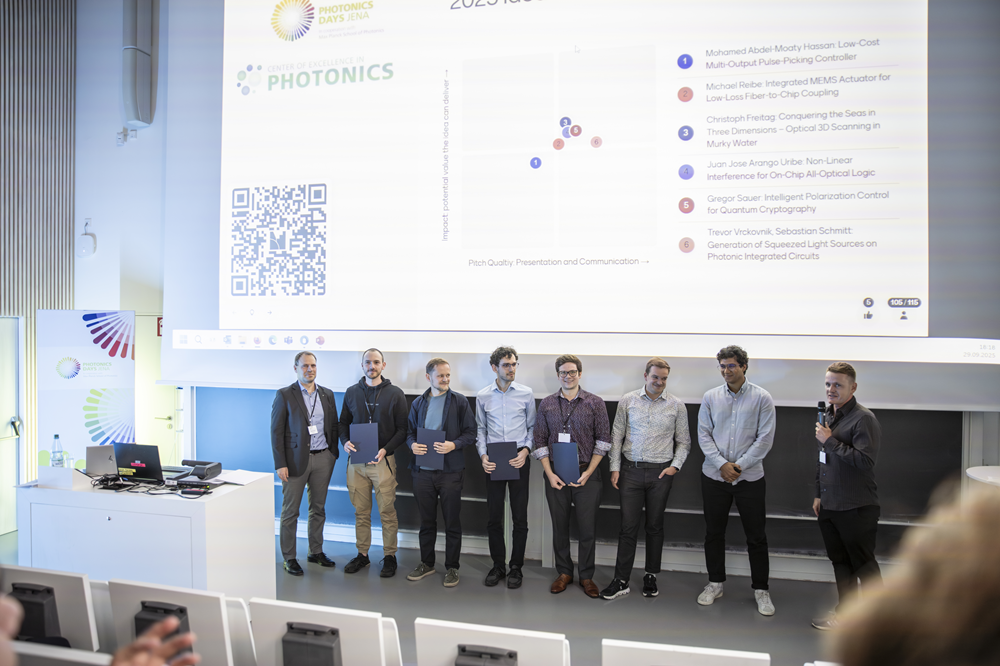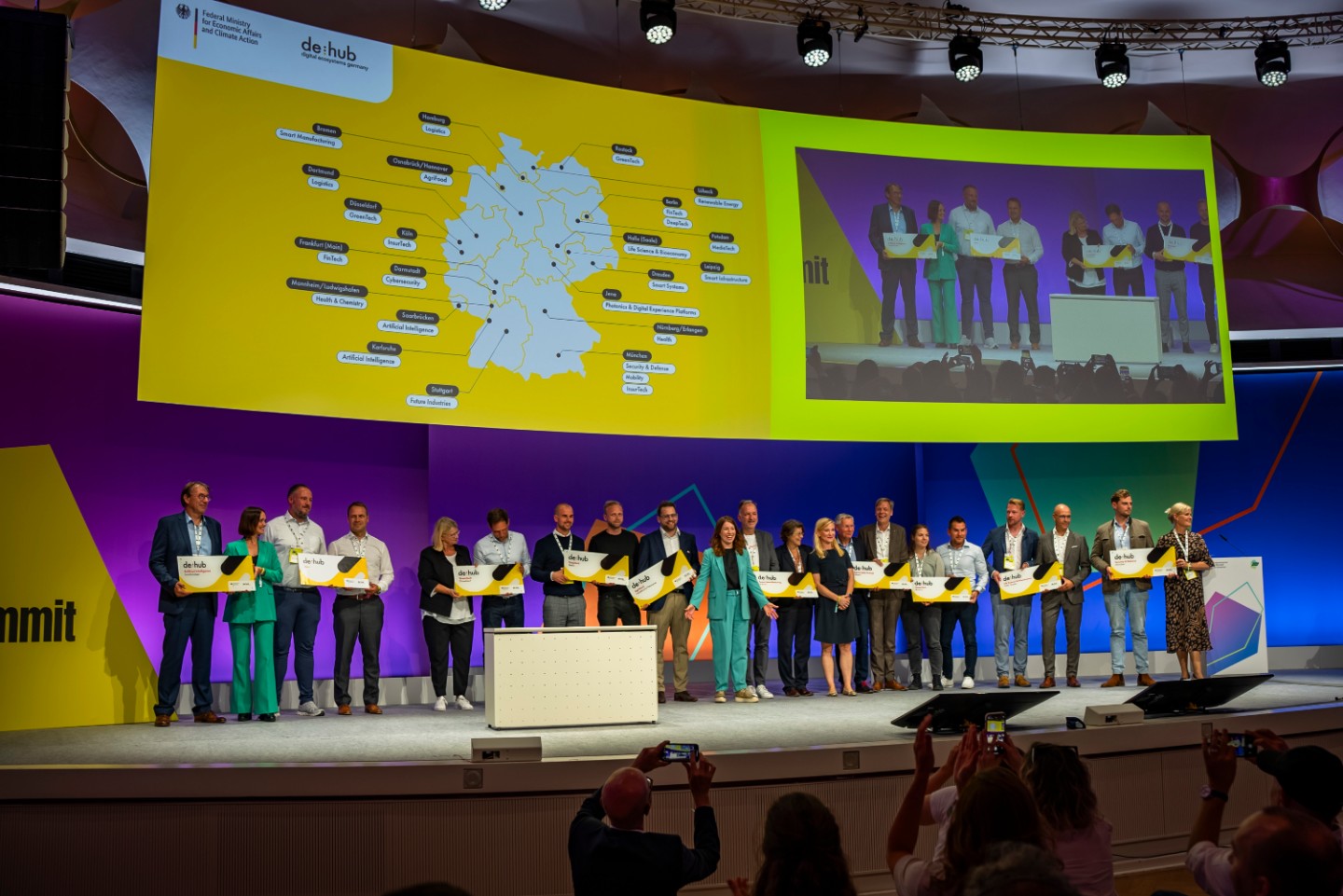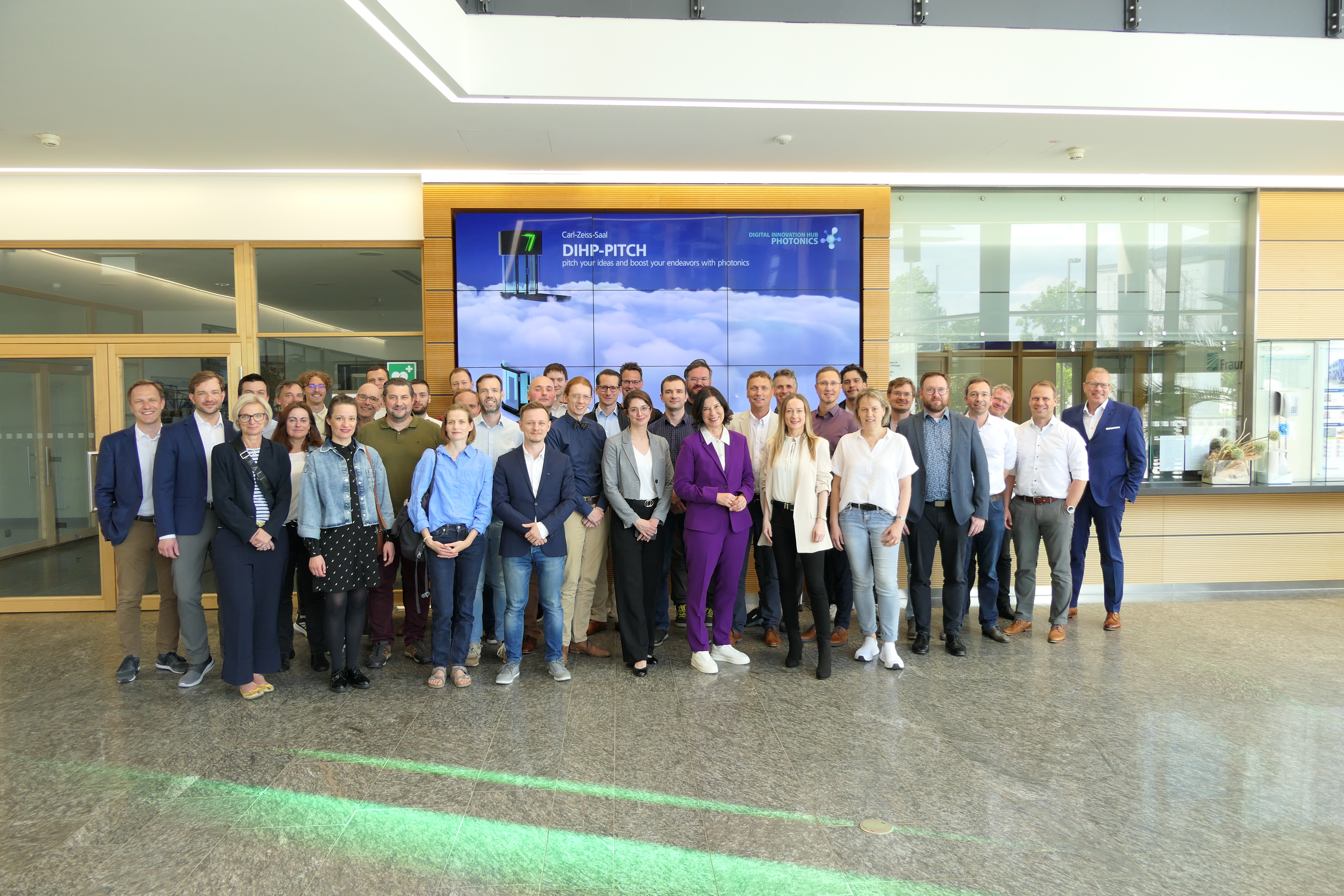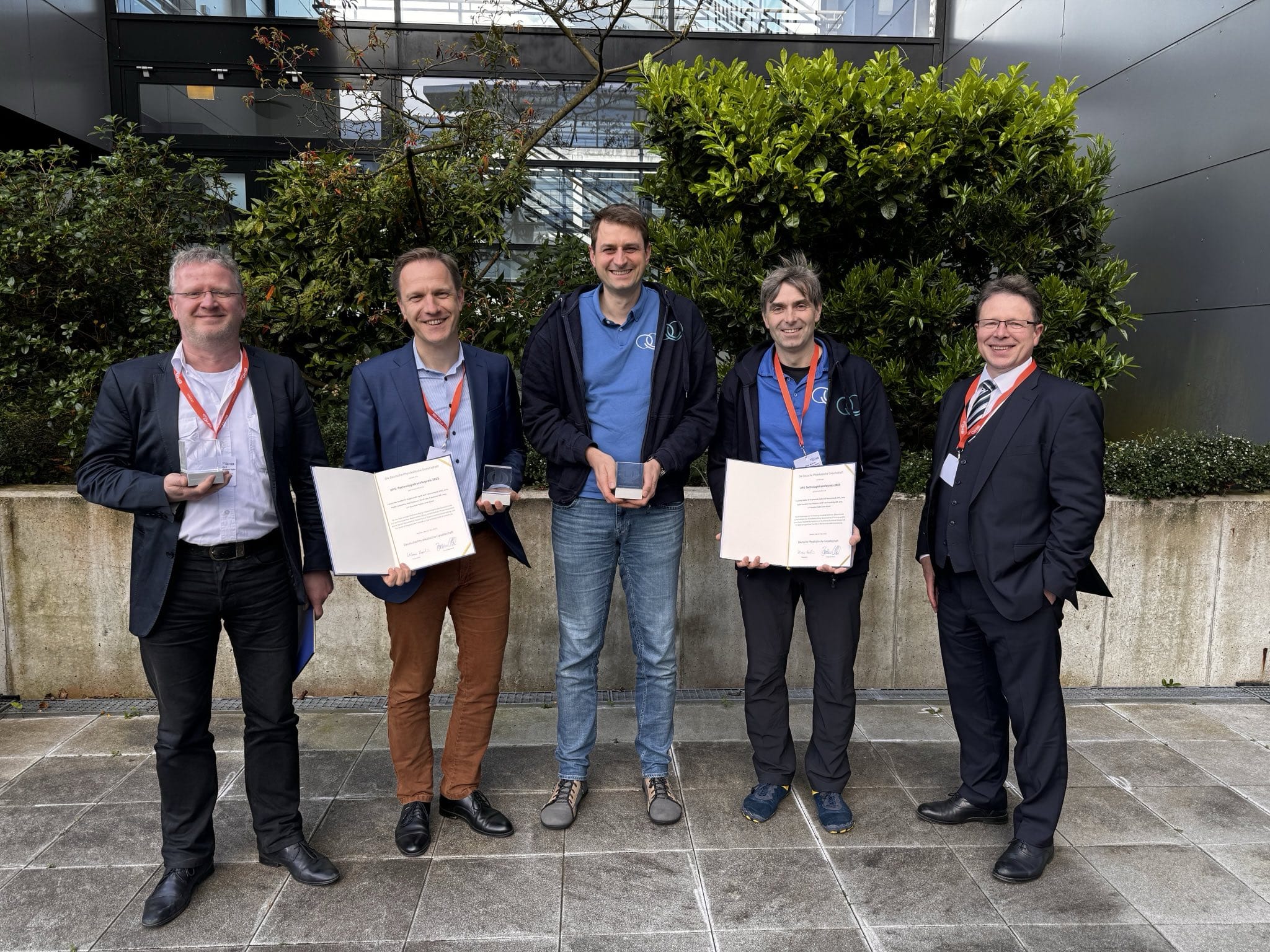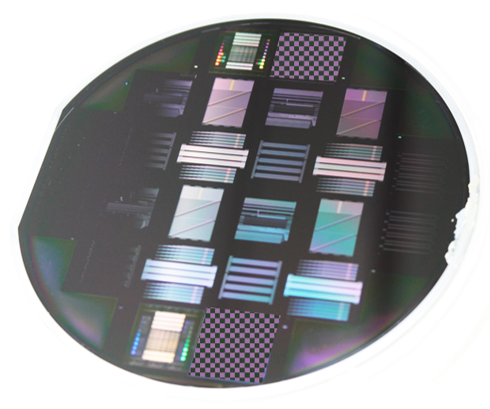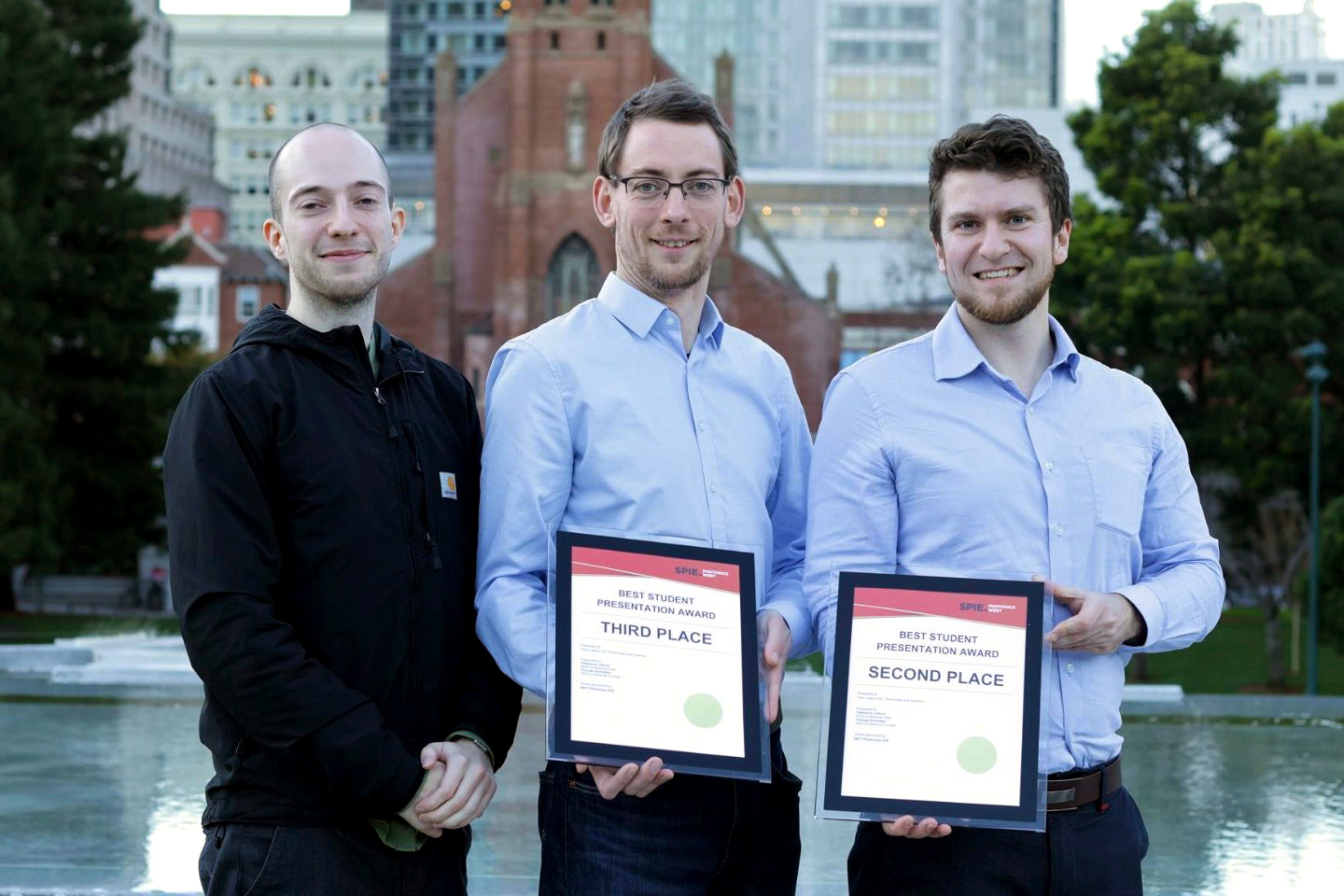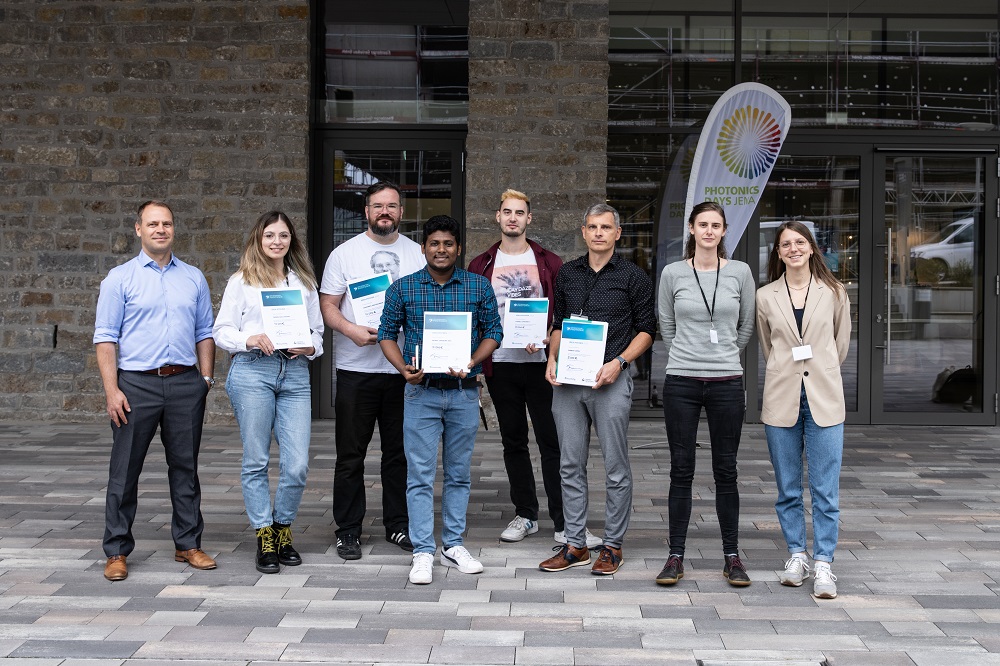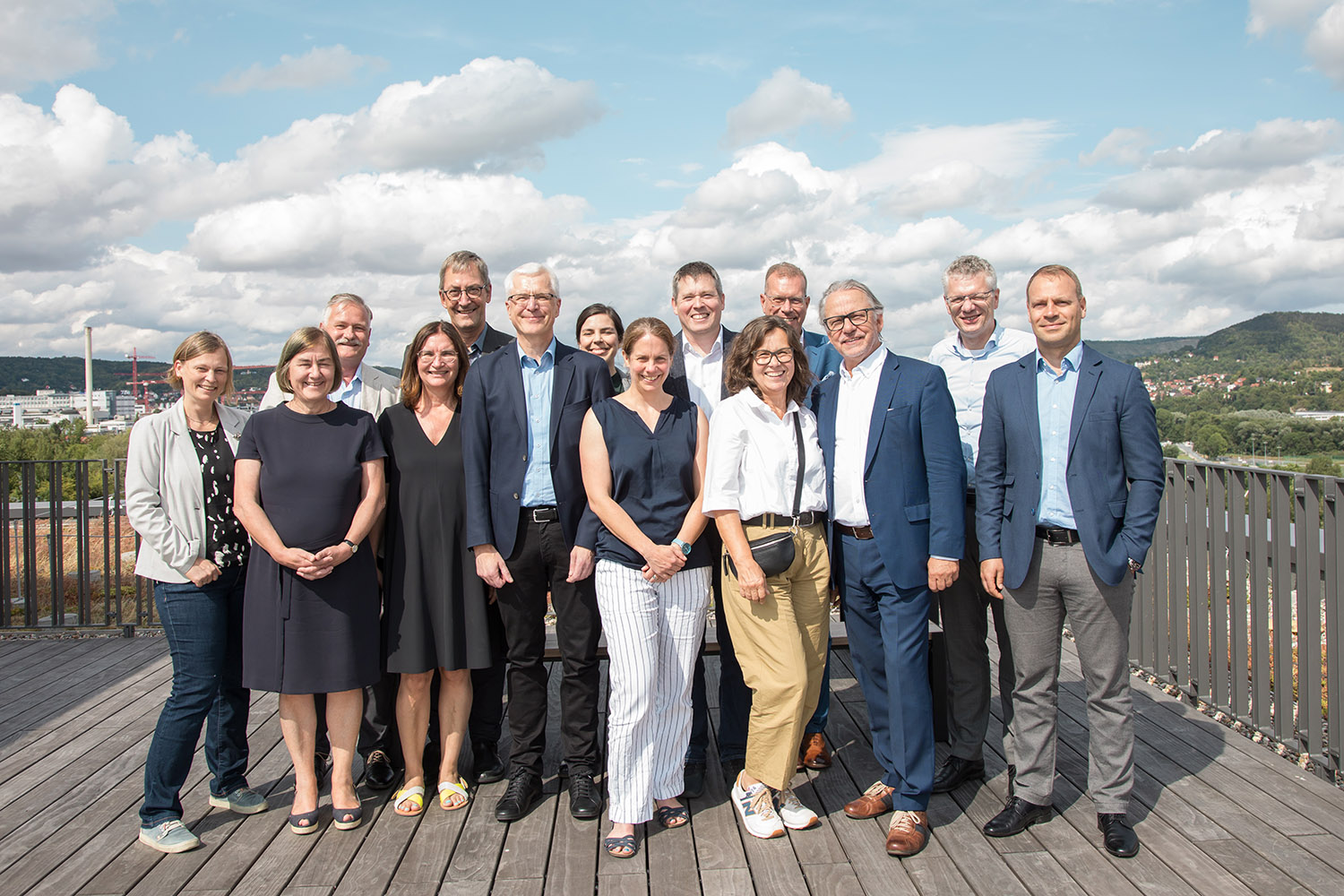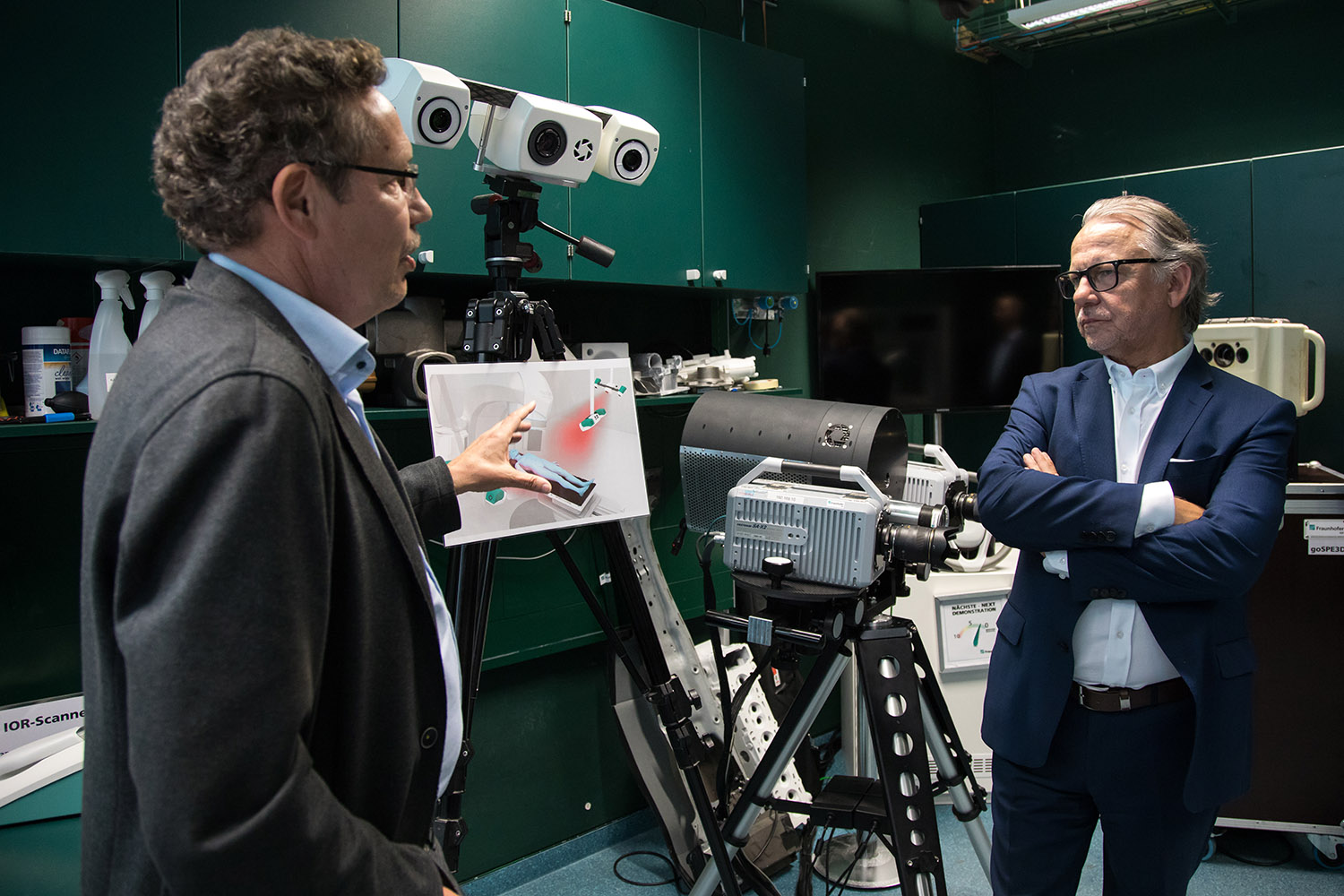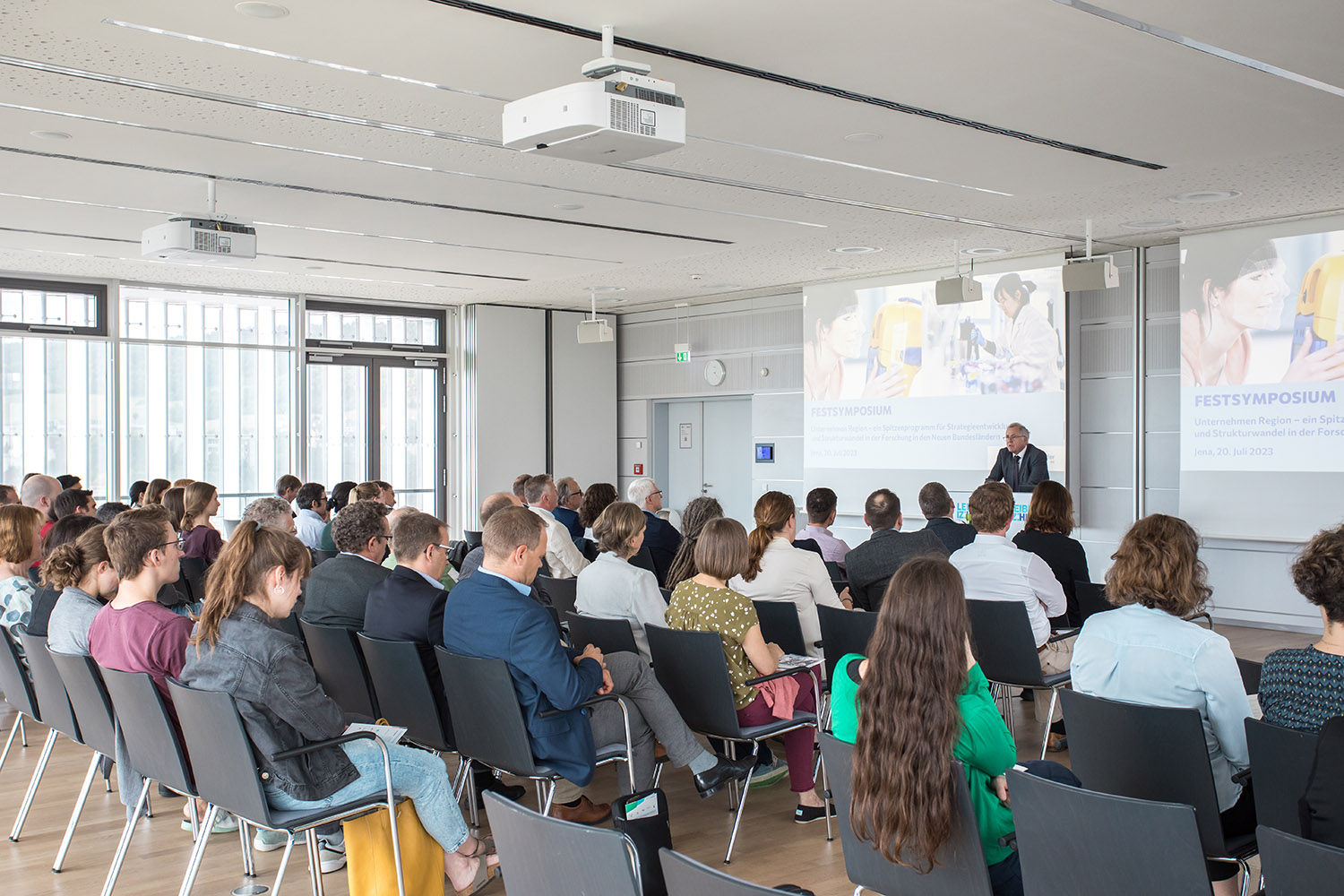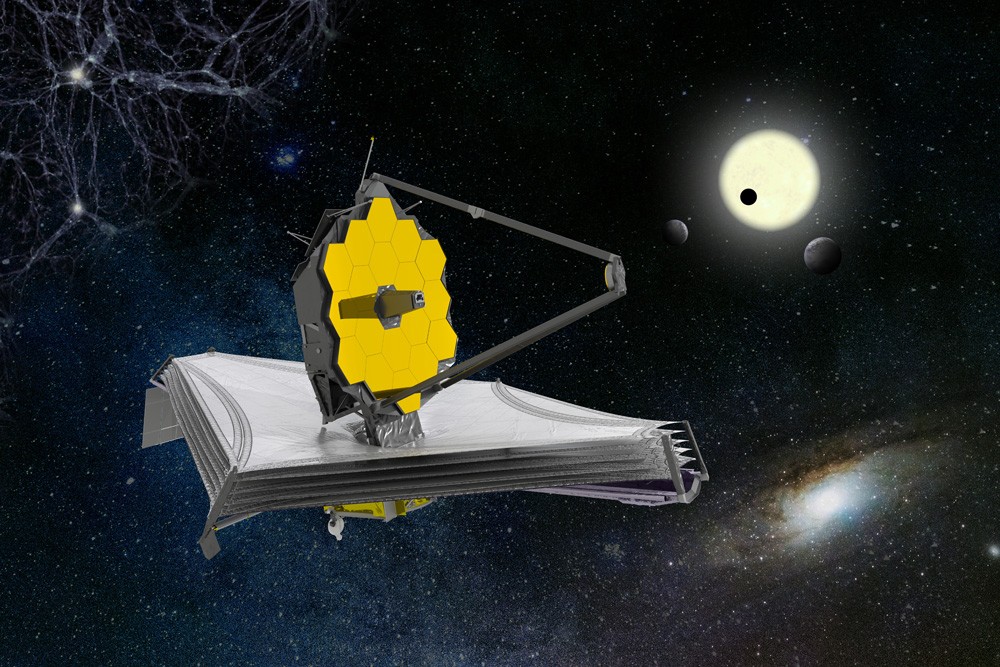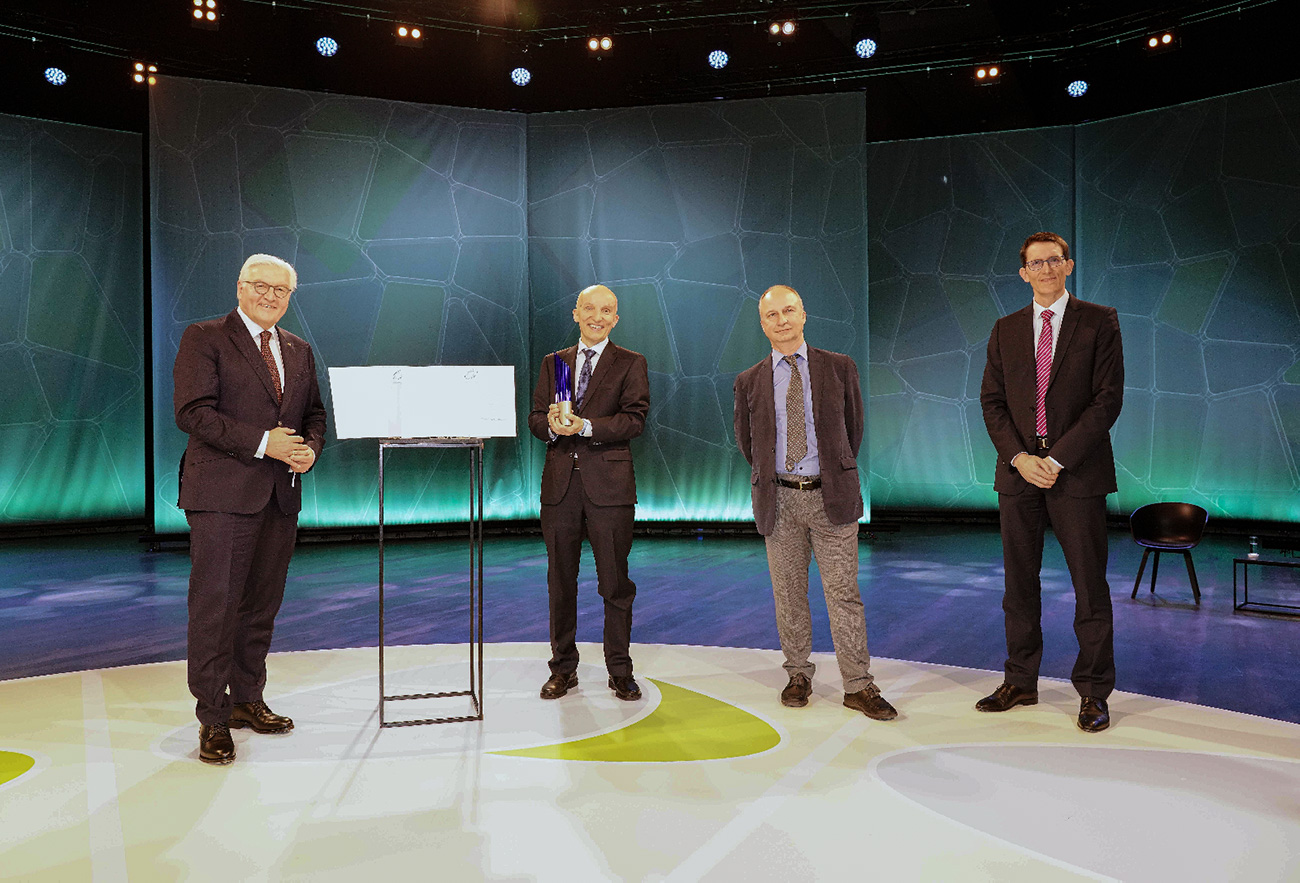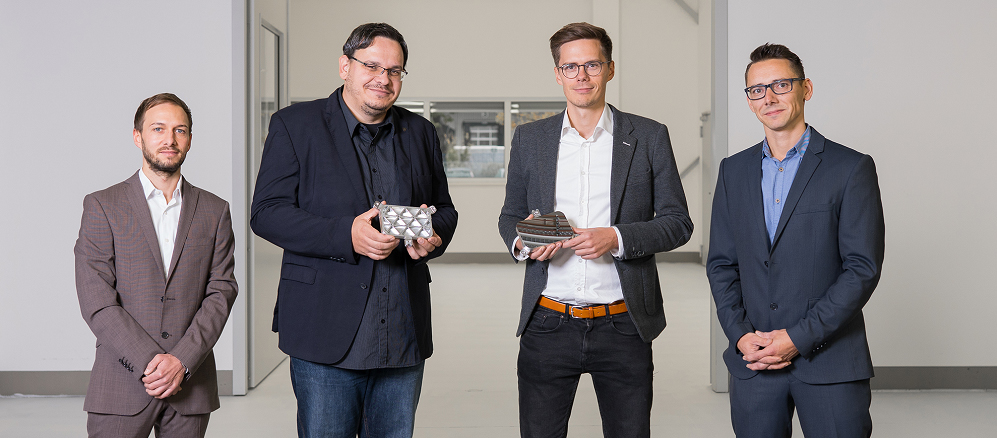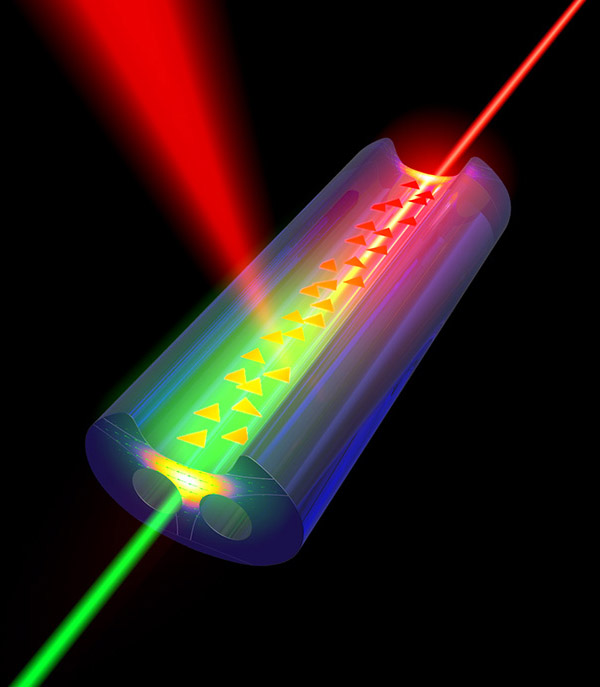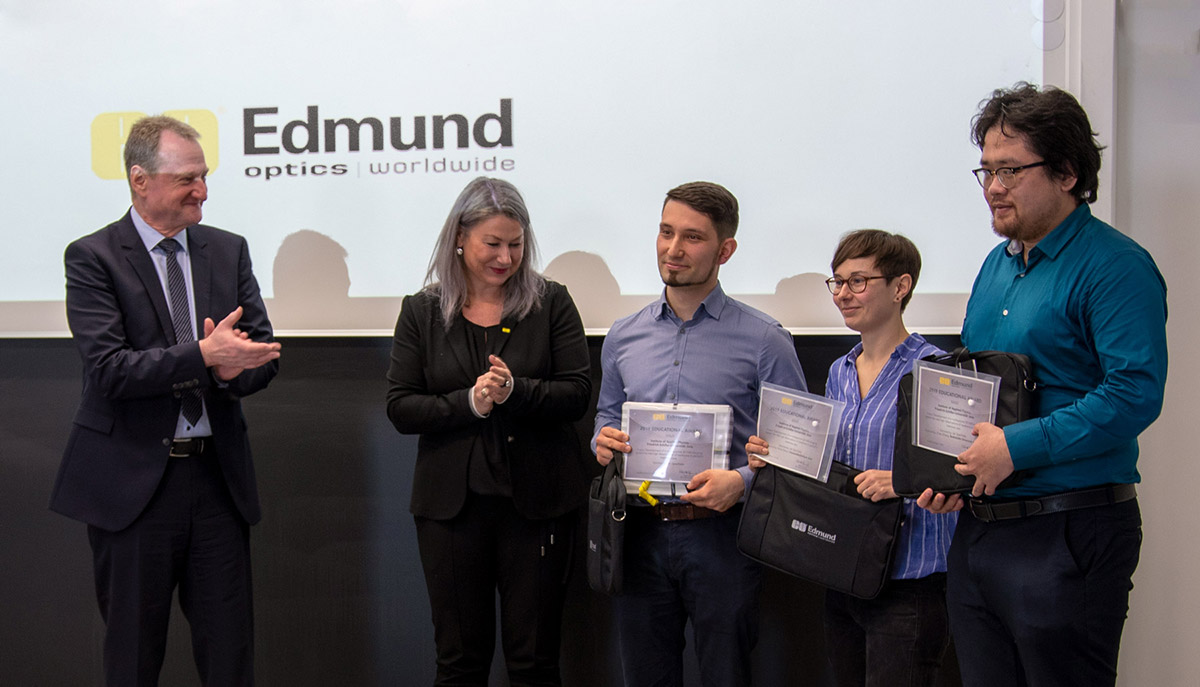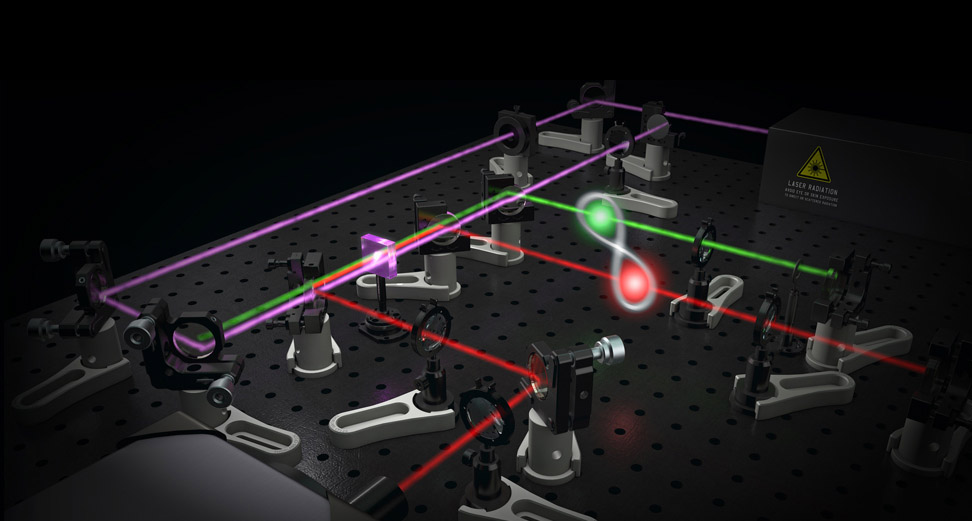Triple victory for young researchers
Fraunhofer IOF researchers receive Quantum Future Award
Jena/ Berlin/ December 5, 2025

Two researchers from Fraunhofer IOF and the Institute of Applied Physics have been honored with the Quantum Future Award for their theses in the field of applied quantum technologies. Dr. Marta Gilaberte Basset and Trevor Vrckovnik each received second place in the doctoral and master's categories, with the latter also being honored with the audience award. The Quantum Future Award is presented annually by the German Federal Ministry for Research, Technology and Space.
Quantum future made in Jena: Two researchers from the Fraunhofer Institute for Applied Optics and Precision Engineering IOF and the Institute of Applied Physics (IAP) at Friedrich Schiller University in Jena were honored with the Quantum Future Award from the German Federal Ministry for Research, Technology and Space (BMFTR) in November. Dr. Marta Gilaberte Basset, a scientist in the Photonic Quantum Systems department at Fraunhofer IOF, took second place in the doctoral category with her dissertation "Resolution limits of quantum imaging with undetected light and optimization towards application".
Trevor Vrckovnik also secured second place in the master's category with his thesis "Non-linear waveguide designs leveraging unique material optical susceptibility tensors" and additionally won the audience award.
